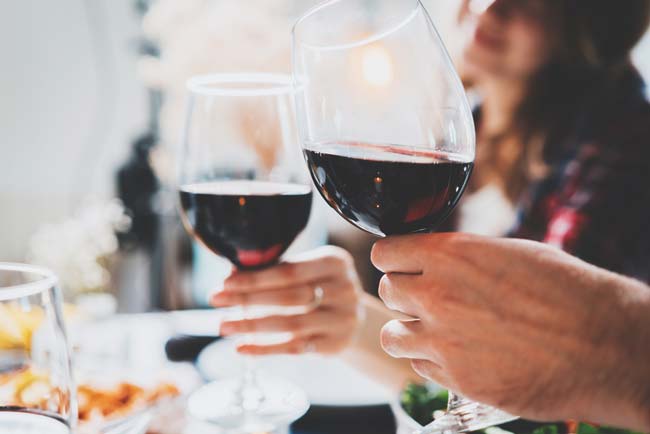Common questions
“Do I have to give up my morning cup of coffee?”
“I like having wine occasionally, but my friends say it’s not a good idea to drink it with bladder issues.”
“What about soda? Is that what’s making me leak?”
I hear questions like these every day, and many patients are concerned that having overactive bladder means that they have to give up the foods and beverages they most enjoy.
Since a lot of us (myself included) begin the day with a cup of something with caffeine, this topic comes up frequently, often with a bit of panic at the thought of having to go without. As a new mom and full-time employee, I fully understand the value of a good latte — and I have a Starbucks Visa to prove it. Like most everything else we consume, caffeine is not problematic in moderation.
How much is too much?
Moderate caffeine intake is generally defined as less than 200 mg per day. That’s the amount you would find in a couple of cups of brewed coffee, or up to four cups of brewed tea. A 12-oz. can of regular soda contains about 30 mg of caffeine, with diet soda having a slightly higher amount. And the occasional candy bar? A measly 10 mg (though you may be more alarmed by the sugar content here).
Research has shown us that people who have more than 300 mg of caffeine per day are more likely to have bladder problems, including frequent urination, urgent need to visit the restroom, and urine leakage. Caffeine is a potential irritant to the bladder lining, and its acidity can be an issue for those who are sensitive. It also acts as a mild diuretic, meaning it can make you go to the bathroom more often, similar to the effect of fluid pills. However, contrary to popular belief, it is not, a source of urinary tract infections.
Additional sources of bladder irritation
Alcohol also has a diuretic effect, and the tannins and sulfites contained in wine can be irritating to the bladder. Carbonation, found in the bubbles of soda and sparkling water, can result in increased urinary frequency when consumed in high doses. Acidic foods are often difficult to tolerate for people with sensitive bladders. Tomatoes, oranges, lemons, lime, grapefruit, pineapple, vinegar, aged cheeses, and foods spiced with chilies or peppers can also provoke frequent urination or bladder pain. Even cranberry — often touted as a bladder-healthy food — can be a bladder irritant due to its acidity. Artificial sweeteners, such as aspartame and saccharine, can also increase urinary frequency and bladder irritability.
The good news
There are plenty of alternatives to caffeine, carbonation, and acidic beverages. Making coffee with alkaline water (bottled water that has a higher pH level) can lower the overall acidity, leading to a smoother taste and less bladder irritation. Preparing coffee or tea in a decaffeinated version or “half-and-half” mixture of caffeinated and decaf is often better tolerated.
White chocolate can help satisfy a sweet tooth and contains less caffeine than milk or dark chocolate versions. When in doubt, foods in their natural forms — without artificial colors, sweeteners, or preservatives — are likely a better choice for your overall health.
Regular exercise, core and pelvic floor muscle strengthening, stress reduction, and good nutrition are all essential keys to bladder health. Being mindful of what we put into our bodies has a significant impact on our quality of life. We already know how a healthy diet protects our heart. With a few simple changes, those same principles can help us to achieve healthy bladder function, too.







